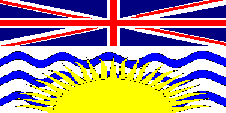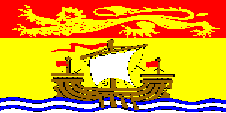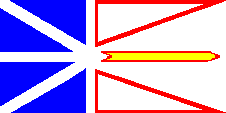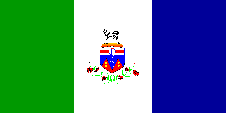Etymologie, Etimología, Étymologie, Etimologia, Etymology, (griech.) etymología, (lat.) etymologia, (esper.) etimologio
CA Kanada, Canadá, Canada, Canada, Canada, (esper.) Kanado
Region, Región, Région, Regione, Region, (lat.) regio, (esper.) regionoj
Provinz, Provincia, Province, Provincia, Province
Territorien, Territoire, Territories
Verwaltungsgliederung: 10 Provinzen und 3 Territorien
A
"§"
acronymfinder
Canadian Provinces Abbreviations and
Canadian Provinces Capitals
(E?)(L?) http://www.acronymfinder.com/stateabbreviations.asp
Provinces of Canada - Abbreviation - Province - Capital
- AB Alberta Edmonton
- BC British Columbia Victoria
- MB Manitoba Winnipeg
- NB New Brunswick Fredericton
- NL Newfoundland and Labrador St. John's
- NT Northwest Territories Yellowknife
- NS Nova Scotia Halifax
- NU Nunavut Iqaluit
- ON Ontario Toronto
- PE Prince Edward Island Charlottetown
- QC Québec Québec City
- SK Saskatchewan Regina
- YT Yukon Whitehorse
"§"
Acadie (W3)
Frz. "Acadie", engl. "Acadia", dt. "Akadien", war die historische Bezeichnung für etwa die kanadischen Regionen "Neubraunschweig", "Nouveau-Brunswick", "New Brunswick" und "Neuschottland", "Nouvelle-Écosse", "Nova Scotia". Auch Teile Quebecs, die Île-du-Prince-Édouard und des amerikanischen Bundesstaats Maine zählte man einst zu "Akadien".
Die Bezeichnung "Acadie" geht zurück auf ind. "akadi" = "üppiges Land".
"§"
Alberta (W3)

B
"§"
British Clumbia (W3)

C
"§"
contemplator - Shantys - Farewell to Nova Scotia
(E?)(L?) http://www.contemplator.com/sea/
D
E
F
G
H
I
J
K
L
M
"§"
Manitoba (W3)

N
"§"
New Brunswick (W3)

"§"
Newfoundland (W3)

"§"
Northwest (Territorium) (W3)

"§"
Nova Scotia - Glossary of the Natural History of Nova Scotia
(E?)(L?) http://nature.museum.gov.ns.ca/nature/nhns2/
"§"
Nova Scotia plural possessive (W3)
(E1)(L1) http://www.takeourword.com/backIssues101-125.html
- Issue 121 Spotlight rank
- Words to the Wise: cash, titanic, the letter y, the letter w
- 5/8/01
- Curmudgeons' Corner if I would have been
- Letters to the Editors "Nova Scotia plural possessive", UFO a ufo?, Dubyonics, Huxley and Darwin
- Laughing Stock A true story (though not etymological)
O
"§"
Ontario (W3)

P
"§"
Prince Edward Islands (W3)

Q
"§"
Quebec (W3)

R
"§"
Region (W3)
(E?)(L?) http://www.wikipedia.org/wiki/Region
S
"§"
Saskatchewan (W3)

T
U
V
W
"§"
wikipedia
Canadian provincial name etymologies
(E?)(L?) http://en.wikipedia.org/wiki/Canadian_provincial_name_etymologies
Provinces
- Alberta: Named after Princess Louise Caroline Alberta (d. 1939), the fourth daughter of Queen Victoria and wife of the Governor General of Canada in the late 19th century.
- British Columbia: Takes its name partly from Britain and partly from the Columbia whose crew first explored the area. It also references the Columbia District, the British name for the territory drained by the Columbia River, which was the namesake of the pre-Oregon Treaty Columbia Department of the Hudson's Bay Company. The adjective "British" was added to the name to distinguish it from Colombia from what became the state of Washington in the United States, whose name was originally going to be Columbia, after the river. Columbia is a poetic name for the American continent discovered by Christopher Columbus.
- Manitoba: Is most commonly believed to have come from the Cree word manitowapow or the Ojibwa word manitobau, both meaning "the strait of the spirit". It is unclear why this name was chosen for the province, though it is generally thought to be named after straits in Lake Manitoba.
- New Brunswick: Named in honour of the Duke of Brunswick-Lüneburg, the future King George IV of the United Kingdom, son of King George III of the United Kingdom.
- Newfoundland and Labrador
- Newfoundland: (Latin: Terra Nova) Was named by its European discoverers around 1500; possibly by the Portuguese explorer Joăo Vaz Corte-Real in 1472, making it the oldest European name in North America
- Labrador: Probably named after Joăo Fernandes Lavrador, a Portuguese navigator who visited the area in 1498.[1]
- Nova Scotia: Latin For "New Scotland". In the 1620s a group of Scots was sent by Charles I to set up a colony, and the Latin name is used in Sir William Alexander's 1621 land grant. Although this settlement was abandoned because of a treaty between Britain and France, the name remains.
- Ontario: Named after Lake Ontario, which got its name from a Native American language, most likely from onitariio, meaning "beautiful lake", or kanadario, translated as "sparkling" or "beautiful", or possibly from Wyandot (Huron) ontare ("lake").
- Prince Edward Island: Named after Prince Edward, Duke of York and Albany, the brother of King George III of the United Kingdom and a commander of troops in Anglo-French fighting in Canada that was occurring at the time the name was given.
- Quebec: From Míkmaq kepék, "strait, narrows"[2]
- Saskatchewan: From the Saskatchewan River (Cree: kisiskaciwani-sipiy, "swift flowing river").
Territories
- Northwest Territories: Named for its location northwest of Lake Superior. The territory once comprised virtually all Canadian land northwest of that lake; it has since been split up into several other provinces and territories, but has retained its name.
- Nunavut: Means "our land" in Inuktitut, the language of the Inuit.
- Yukon: Takes its name from the Yukon River, whose name in turn means "great river" in Gwich'in.
See also
- Name of Canada
- List of etymologies of country subdivision names
References
- ^ "Joăo Fernandes Lavrador, exploration dates". http://www.thecanadianencyclopedia.com/index.cfm?PgNm=TCE&Params=A1ARTA0002769. Retrieved 2007-08-31.
- ^ Afable, Patricia O. and Madison S. Beeler (1996). "Place Names". In "Languages", ed. Ives Goddard. Vol. 17 of Handbook of North American Indians, ed. William C. Sturtevant. Washington, D.C.: Smithsonian Institution, pg. 191
X
Y
"§"
Yukon (Territorium) (W3)

Z










